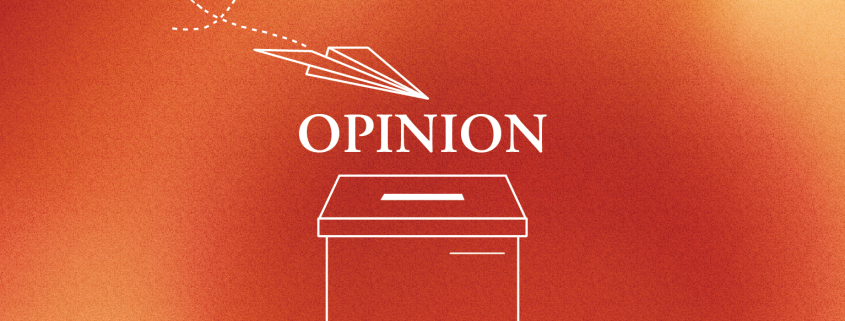Operation Overachiever: How far is too far to get the grade?
I remember the first time I received a “C” on my report card in the third grade. I was convinced this “bad grade” would turn the 2012 end-of-the-world conspiracy into a reality. I was crushed — I’d never gotten anything below a “B” and I couldn’t understand what this meant for me. I had always been labeled the smart kid in class, who knew all the answers and never had to struggle to pass a quiz. The bookworm. The teacher’s pet. The pick-me.
That big, bold “C” haunted me for weeks. If I’m being honest, it still does. I remember stuffing my report card into the bottom of my bag like it was trash. I didn’t want to see it or believe it. I pictured my parents’ disappointed faces and could practically hear the lecture I imagined would come.
I have been what you call an “overachiever” for as long as I can remember. In high school, I prided myself on studying while getting the least amount of sleep possible the night before an exam. I was driven by A’s and held back by B’s. I was determined to be at the top of my class and attend the best university. I couldn’t do that by being mediocre.
Everyone around me was doing better academically, online and offline. Seeing how effortless school was for my peers terrified me and instilled within me a toxic sense of competition. I needed to catch up with my classmates and those on social media. It was a poisonous race where I was always waiting for a moment to catch my breath. I put all my eggs in one basket and based all my self-worth on the grades I saw on the page. The pressure that I put on myself to be the best was debilitating, to say the least. And now, as a college student, I struggle to navigate my academics without drowning in the desire to overachieve.
I’m not the only one who struggles with this academic pressure. According to the American Institute of Stress, eight out of ten college students experience frequent episodes of stress. I convinced myself that stress was just part of the process. I even told myself that I thrived under pressure when, in reality, I was tearing at the seams. I was under the impression that being an overachiever was the only way to accomplish my goals and succeed in the future.
Spoiler alert: I was sorely mistaken. In fact, I’ve come to realize that overachieving is not only detrimental but counterproductive.
If you’re a fellow overachiever, I know what you’re thinking: “Gabby, what’s wrong with striving to be perfect? I want to deliver quality work!’’
First, I’m sorry to tell you, but perfection is an illusion. It doesn’t exist. Second, the desire to have an A on a midterm or deliver a flawless rendition of “I Will Always Love You” to your family members isn’t wrong. But if you find that you beat yourself up over a B instead of an A, or you lash out when your voice cracks in the second verse, that could be a small part of a more significant issue. Psychology Today discusses the dangers of perfectionism, stating that striving to be perfect can lead to depression and anxiety.
Not only this, but overachieving isn’t as productive as you might think. It can actually lead to a massive amount of procrastination as every task holds equal importance, which makes it challenging to prioritize. Tasks are muddled and it can become increasingly difficult to begin tasks out of fear, failure or inadequacy.
To my fellow overachievers, I know it can be tough to break the cycle. However, overachieving isn’t ingrained — it is learned. And, like all things, everything can be unlearned if you’re willing to do the work. So, instead of doing the work to be perfect, do the work to give yourself a break and allow yourself to be imperfect.
Long-term success and satisfaction do not rely on the status of your GPA or the amount of A’s on your transcript. It comes from your definition of happiness and success, those you treasure in life and your values. Be a little kinder to yourself and cut yourself some slack.

